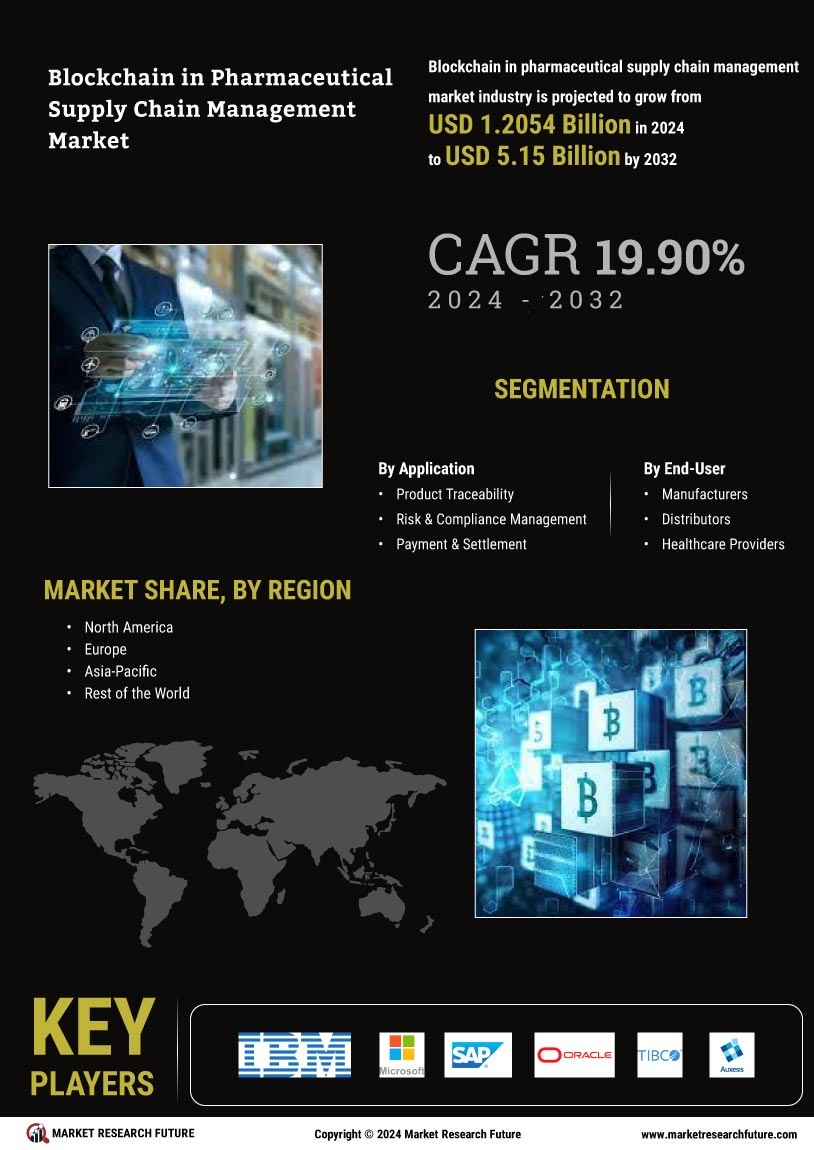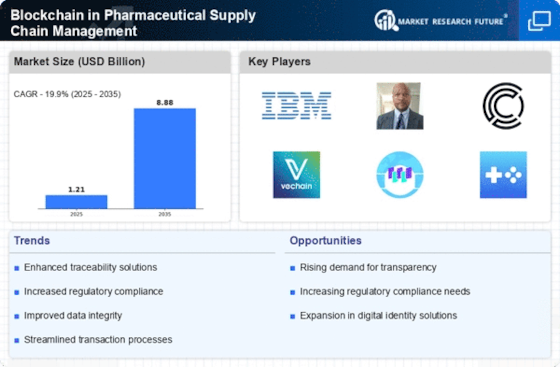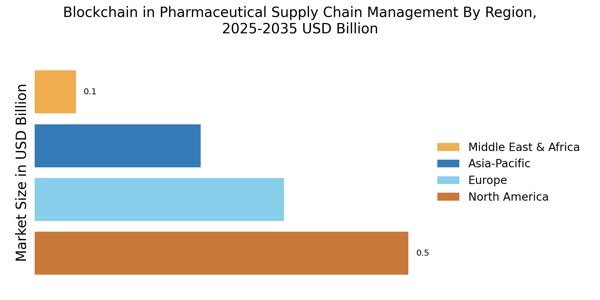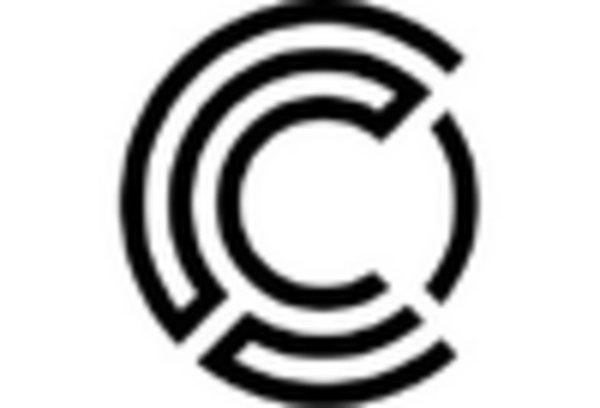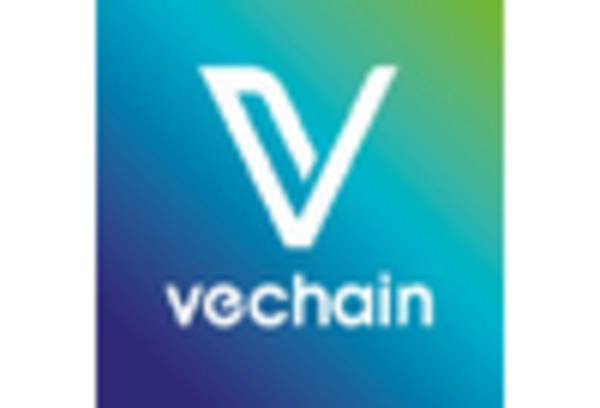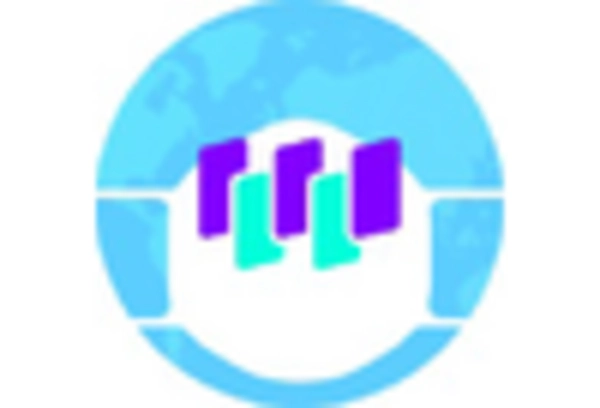Increased Transparency
Transparency is a critical factor in the Blockchain in Pharmaceutical Supply Chain Management Industry. Stakeholders, including manufacturers, distributors, and consumers, demand greater visibility into the supply chain. Blockchain technology facilitates real-time tracking of products, allowing all parties to access verified information regarding the origin and journey of pharmaceuticals. This transparency can lead to improved trust among consumers and regulatory bodies. A survey indicates that 70% of consumers are more likely to purchase products from companies that provide transparent supply chain information. Consequently, pharmaceutical companies are likely to adopt blockchain to meet these expectations and enhance their market position.
Enhanced Data Integrity
Data integrity is paramount in the Blockchain in Pharmaceutical Supply Chain Management Industry. The reliance on accurate and reliable data is essential for decision-making and operational efficiency. Blockchain technology ensures that data entered into the system is secure and cannot be altered without consensus from all parties involved. This feature is particularly beneficial in preventing data breaches and ensuring the authenticity of information. A report suggests that data integrity issues can lead to losses exceeding 3 trillion USD annually across various industries. By adopting blockchain, pharmaceutical companies can enhance data integrity, thereby improving overall supply chain reliability and performance.
Enhanced Security Measures
The Blockchain in Pharmaceutical Supply Chain Management is increasingly recognized for its potential to enhance security measures. By utilizing decentralized ledgers, stakeholders can ensure that data is immutable and tamper-proof. This is particularly crucial in an industry where counterfeit drugs pose a significant threat. According to recent estimates, counterfeit drugs account for approximately 10% of The Blockchain in Pharmaceutical Supply Chain Management. Blockchain technology can provide a secure method for tracking the provenance of drugs, thereby reducing the risk of counterfeit products entering the supply chain. As a result, pharmaceutical companies are likely to invest in blockchain solutions to safeguard their products and maintain consumer trust.
Cost Reduction Opportunities
Cost efficiency remains a pivotal driver in the Blockchain in Pharmaceutical Supply Chain Management Industry. The implementation of blockchain technology can streamline operations by reducing the need for intermediaries and minimizing administrative costs. A study indicates that blockchain could potentially save the pharmaceutical industry up to 20 billion USD annually by optimizing supply chain processes. By automating transactions and improving data accuracy, companies can reduce errors and enhance operational efficiency. This cost reduction is particularly appealing to pharmaceutical companies facing increasing pressure to lower prices while maintaining quality, thus driving the adoption of blockchain solutions.
Regulatory Compliance Facilitation
Regulatory compliance is a significant driver in the Blockchain in Pharmaceutical Supply Chain Management Industry. As regulations become more stringent, particularly concerning drug safety and traceability, blockchain technology offers a viable solution. By providing an immutable record of transactions, blockchain can help companies demonstrate compliance with regulatory requirements. For instance, the Drug Supply Chain Security Act mandates enhanced tracking of prescription drugs. Blockchain can simplify the process of meeting these regulations, thereby reducing the risk of non-compliance penalties. This capability is likely to encourage pharmaceutical companies to invest in blockchain solutions to ensure adherence to evolving regulatory landscapes.
